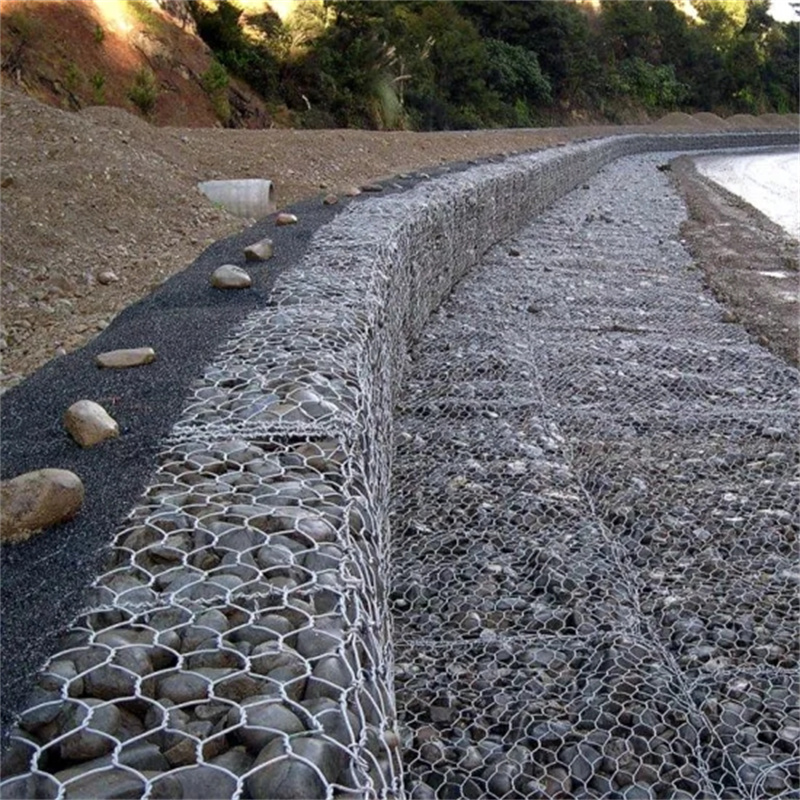des. . 05, 2024 14:57 Back to list
gabion mesh
The Versatility and Benefits of Gabion Mesh
In the realm of civil engineering and landscaping, gabion mesh has emerged as a versatile and effective solution for a variety of applications. This type of material, traditionally made from high-quality steel wire, is designed to create structures known as gabions, which are essentially wire mesh cages that can be filled with rocks, soil, or other materials. They have been used for centuries, but their utilization has expanded significantly in recent years due to their numerous benefits and aesthetic appeal.
What are Gabion Mesh Structures?
Gabion mesh structures consist of interconnected wire mesh containers that are filled with stones, concrete, or other aggregates. These containers can be arranged in various configurations to create walls, fences, retaining walls, sound barriers, and even decorative features in landscaping projects. The design of gabion meshes allows for flexibility; they can be customized in terms of size, shape, and filling materials, making them suitable for both functional and aesthetic purposes.
Advantages of Gabion Mesh
1. Stability and Erosion Control One of the primary advantages of gabion mesh is its ability to provide stability to slopes and banks. By creating a barrier that absorbs energy from flowing water, gabion structures help prevent soil erosion, which can be particularly important in flood-prone areas. The permeability of the mesh allows water to flow through, reducing the risk of pressure build-up behind the wall.
2. Ease of Installation Gabion mesh is relatively easy to install compared to traditional retaining wall materials. The modular nature of gabion baskets enables quick assembly and placement, which can significantly reduce construction time. Furthermore, no special machinery is typically required, making it a cost-effective solution for many projects.
gabion mesh

3. Environmental Benefits Gabions are an environmentally friendly option since they utilize natural materials for infill, such as stones, which can often be sourced locally. This not only reduces transportation costs but also minimizes the carbon footprint associated with manufacturing traditional building materials. Additionally, as gabion structures become overgrown with vegetation, they can blend seamlessly into the landscape, promoting biodiversity.
4. Durability Gabion mesh is designed to withstand harsh environmental conditions. The use of galvanized or PVC-coated steel wire enhances its resistance to corrosion and rust, ensuring longevity even in challenging climates. This durability makes gabion structures a reliable choice for developers and municipalities alike.
5. Cost-Effectiveness Given their low material costs and ease of installation, gabion mesh structures are often more economical than conventional retaining walls or fences. Additionally, their long lifespan leads to reduced maintenance and replacement expenses over time.
Aesthetic Appeal
While functionality is essential, the aesthetic aspect of gabion mesh cannot be overlooked. When filled with carefully selected stones, gabion structures can enhance the visual appeal of outdoor spaces. They can be integrated into modern landscaping designs, serving as attractive features that complement their natural surroundings. The variety of filling materials allows for creative expression in design, making it possible to create unique and eye-catching installations.
Conclusion
Gabion mesh is a multifaceted material with a wide range of applications in civil engineering, landscaping, and erosion control. Its stability, ease of installation, environmental friendliness, durability, cost-effectiveness, and visual appeal make it an excellent choice for various projects. As more professionals in the field recognize the benefits of gabion mesh, its use is likely to grow, paving the way for innovative designs and sustainable practices in construction and landscaping. Whether for practical purposes or design elements, gabion mesh structures offer a modern solution that meets both functional and aesthetic needs.
-
Why PVC Coated Gabion Mattress Is the Best Solution for Long-Term Erosion Control
NewsMay.23,2025
-
Gabion Wire Mesh: The Reinforced Solution for Modern Construction and Landscape Design
NewsMay.23,2025
-
Gabion Wall: The Flexible, Seismic-Resistant Solution for Modern Landscaping and Construction
NewsMay.23,2025
-
Gabion Wall Solutions: The Durable, Decorative, and Affordable Choice for Every Landscape
NewsMay.23,2025
-
Gabion Basket: The Durable and Flexible Alternative to Traditional Retaining Walls
NewsMay.23,2025
-
Gabion Basket: The Proven Solution for Slope Stability and Flood Control
NewsMay.23,2025
-
Versatility of Chain Link Fence Gabion
NewsMay.13,2025






